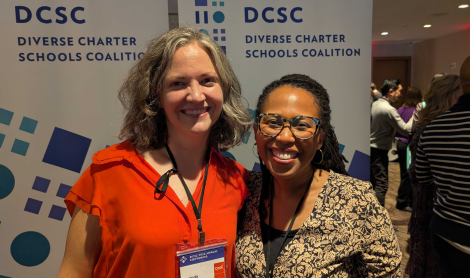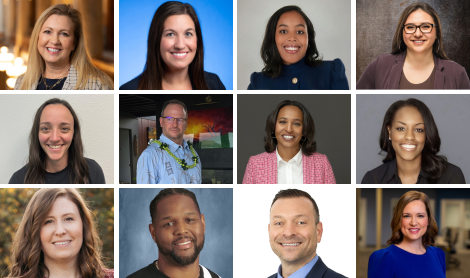There is a really interesting thing going on in Washington, D.C.’s charter sector. The Public Charter School Board (PCSB) is moving toward approval of a new charter middle/high school (DC International or “DCI”) that will serve students from five different elementary charters that all have language immersion programs.
The PCSB will pull this off through some creative authorizing, as it has done in the past (for example, sponsoring some of the first “mergers and acquisitions” among charters). Instead of approving a new from-scratch high school, the board is letting this one emerge from the five existing schools. Last December, the PCSB approved the addition of upper grades for Washington Yu-Ying, a Chinese immersion K-5 charter. Last week, they held hearings on expanding the other four charters: Elsie Whitlow Stokes, a K-6 charter with both French and Spanish immersion programs; two Spanish immersion K-5s, DC Bilingual and Latin American Montessori Bilingual (LAMB); and Mundo Verde, an early childhood charter.
What’s driving this is that the kids in these schools are developing some serious second language proficiencies—but have no place to continue growing these skills among the existing middle and high school options. DCI will allow them to continue the full immersion approach, tackling history and physics and literature in a second language, and it will offer the rigorous International Baccalaureate (IB) curriculum.
The partner schools are all impressive in their own way (and in fact, it was just announced that Stokes founder Linda Moore will join the Charter School Hall of Fame this June). They’re also pretty diverse, which is too rare in D.C. I remember some concern that Yu-Ying might just draw white and Asian kids; instead, its students are about 55 percent African-American or Hispanic and just 18 percent Asian/Pacific. LAMB is 58 percent Hispanic, but also 22 percent African-American and 20 percent white. Mundo Verde’s children are about one-quarter African-American, a third Caucasian, and just under 40 percent Hispanic.
By extending their charters into the upper grades, the PCSB is able to sidestep D.C.’s open admissions requirements. Students leaving the partner schools will be guaranteed a seat at DCI, just as they would move up through grade levels in a normal K-12 charter. Students from other schools can apply but they will go into a lottery.
In order to maintain fidelity to the IB sequence, DCI does not plan to enroll new students after ninth grade. (To state the obvious, new arrivals would have to be awfully handy with one of the three languages in order to keep up academically.) This may grate on folks who think that the only democratic way is to accept everyone right up to graduation day. But it’s firmly in line with practice in the four “specialized” high schools run by D.C. Public Schools, which require tests to get in (or in the case of Duke Ellington School for the Arts, an audition) and discourage new applicants in the upper grades.
Are there other examples of independent charters that came together around a particular curriculum or program and founded their own high school? I’d love to know. But I suspect DCI is breaking new ground, and in a very cool way. The Public Charter School Board is expected to give final approval to the plan next month.


